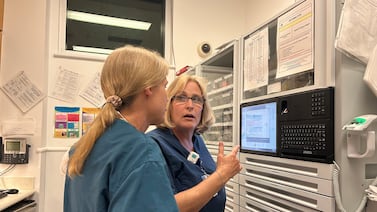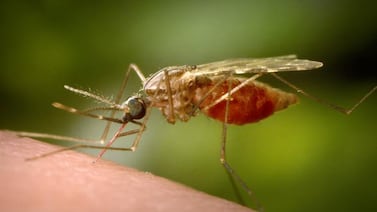Public health, explained: Sign up to receive Healthbeat’s free Atlanta newsletter here.
As the new year begins, Atlanta and Georgia respiratory disease spread has accelerated to some of the highest levels seen this winter.
Over the last week of 2024, flu cases hospitalized 220 residents in the metro Atlanta area, according to the latest report from the Georgia Department of Public Health. That week alone makes up over a third of the region’s count since October.
Statewide cases appear to be paralleling that trend. Preliminary data from the U.S. Centers for Disease Control and Prevention suggest that Georgia’s hospitalization rate for the virus also rose at the end of 2024 to its highest level in recent months. Additionally, the state percentage of health care visits for suspected flu cases has continued to increase and outpace the national average.
Respiratory syncytial virus, known as RSV, and Covid-19 are infecting many Georgians as well. Wastewater surveillance sites detect high levels of the viruses in communities across the state. RSV levels appear to have remained at the new heights they reached last month.
These state benchmarks show yearly rises in the three viruses, but many also indicate a less severe season so far relative to recent winters. In the last three months of 2023, metro Atlanta area health care centers hospitalized about 1,000 more people for the flu than they did at the end of 2024.
And while CDC numbers indicate that December’s final week was a recent peak for Georgia hospitalizations related to any of the three viruses, that rate is significantly lower than it was any of the past four years at the same time.
Still, there are other respiratory diseases that have outpaced recent Georgia recordings. One of them is pertussis, also known as whooping cough. The bacterial disease, most common in children, can compromise babies’ breathing and cause coughing strong enough to break ribs. For 2024, the CDC has recorded 280 Georgia cases — nearly three times the count of 2023.
The system used to detect whooping cough is updated frequently, and the 2023 and 2024 counts could continue to change. But in a health advisory last month, the state health department warned providers to be on the lookout for any patients presenting with severe coughs.
The CDC recommends five doses of vaccines throughout a child’s first six years that helps protect against whooping cough. The organization says besides some groups like pregnant people and seniors, most adults don’t need to seek additional immunizations.
Allen Siegler is a reporter covering public health in Atlanta for Healthbeat. Contact Allen at asiegler@healthbeat.org.







